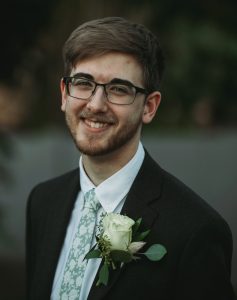
3 Lessons I Learned From Writing My First Book
Overall, it took two years of on-and-off writing for me to finish my first (and only to date) book, Sylenah, which clocked in at around 89,000 words upon completion. That’s no Brandon Sanderson novel, mind you, but I still felt pretty accomplished when it was finally done. I got a few copies printed through Lulu, just so I could hold it in my hands. That was the strangest part of the whole process, holding a book that I actually wrote.
That being said, it wasn’t good and I knew that. But that doesn’t mean that it wasn’t worth it, because I learned so much about writing, both generally and personally. So, for this post, I thought I would share the three biggest things I learned from writing Sylenah.
1. Outlines are Crucial
Perhaps the most important lesson was about my writing process, and how crucial outlining is for me.
For those who may not know, it is generally said that there are two groups of writers: the discovery writers (also called gardeners or pantsers) and the outliners (also called architects or planners). What separates them is their approach to writing; the discovery writers take a premise and “discover” what happens next by writing what comes naturally, whereas the outliners will start with a detailed outline and build the story bit by bit. Neither way is better than the other per se, but most people usually identify with one more than the other.
Now, the truth is that very few people cleanly fall into one category or the other. Most of the time, writers will have characteristics of both pantsers and planners and they build their own unique strategy around those aspects. So, while it is said there are two groups, it’s really more of a spectrum than anything.
Well, I approached writing Sylenah as a discovery writer, mostly because I wasn’t sure which I was. And boy was it tough. Writer’s block was persistent as I trudged through chapter after chapter, all the while I had no bearing of where the story was going or building up to. I often got stuck because I was trying to think a couple chapters ahead of the one that I sat down to write. The worst part was realizing that I had never developed the aspects of the premise that I enjoyed the most. It was like craving chocolate but forgetting to buy some and end up leaving the store without it. How could I forget the very thing I wanted most?
So, when I started writing the book I’m currently working on, the first thing I did was outline the whole thing, chapter by chapter. So far, it’s worked out much better for me. I think that this is partially because I often have specific ideas or cool things I want to be in the story, and an outline makes sure that they have a place in the story. It also helps me not feel lost while writing, because I’ve already decided what the chapter is going to be about and all I have to do is do that. Simple and straightforward!
The takeaway for you reader then is to not be afraid to try new methods and strategies, just so you can see what works best for your writing
2. Think Smaller
In its current state, I think that Sylenah’s biggest flaws are its scope and pacing. It tries to do too much too quickly. In my mind I thought I was writing a close examination of the protagonist’s character during a multi-staged quest, but in reality, I was attempting to write a whole series in a single book.
For context, Sylenah follows a young girl named – you guessed it – Sylenah, as she and her sister run away from their abusive parents. After some time in a new city, they learn that they are going to need money to afford an education, so Sylenah becomes a pirate so that her sister can get the schooling she deserves. Simple enough, right? Well, throw in sea dragons, a legend about a massive vault of treasure locked by seven keys, and an enchanted sword, and things get more complicated.
And yet, I thought I was writing a fun, little pirate story with dragons, so I didn’t give the rest of the plot any time to develop. As a result, the second half of the book feels like the characters are teleporting across the world and back to look for the keys. Looking back, I should have thought about how to make the plot smaller so that it could be reasonably developed in the span of a book. Maybe instead of seven keys, there’s just two or three. Or no keys, and the plot is about finding the vault through clues and riddles.
I’m sure that a writer much more talented than I could make the original story work. But for me at my skill level, I should think smaller and try to fully develop one idea before adding more to the plot.
3. Consistent Writing Makes for Easier Writing
Sylenah took two years to write because my writing schedule was not consistent at all. I would often go a month or two without writing anything, only to try to write but feel like I had no idea what I was writing about. This was partly because of college, sure, but honestly, I think the lack of any writing schedule is really to blame.
You see, I thought that I could only write when I felt like I could. When my “muse” was ready for me to write. So, if I sat down and nothing came to me right away, I told myself I could try again later. I thought that this was me trying to write at my best, so to speak, but really this was procrastination, plain and simple. And by delaying, I was only making it harder to try again the next time.
Near the end though, I grew anxious to finish the book and started to keep myself to a schedule. I would try to write for at least one hour a day, no matter what. And during this time was when I felt the best about my writing. That’s how I learned that if I just wait until I felt like writing, then I would be putting it off forever. Instead, I needed to just sit down and write.
In all honesty, this is still something I struggle with, because it’s so easy to say “nah, I’m tired, it can wait.” But I must remind myself that if I don’t make time to write, then there won’t be a time. And, I must remind myself of this lesson I learned with Sylenah, despite how much the lazy part of me wants me to forget.
So, take it from me: make a writing schedule and stick to it!
I hope you have gotten something out of my experience, whether it’s for your writing or for something else entirely. The most useful lessons can only be learned by practice, so stop listening to me and get back to writing already!
Thanks for reading!

I’m not that much of a internet reader to be honest but your sites really nice, keep it up! I’ll go ahead and bookmark your site to come back down the road. All the best